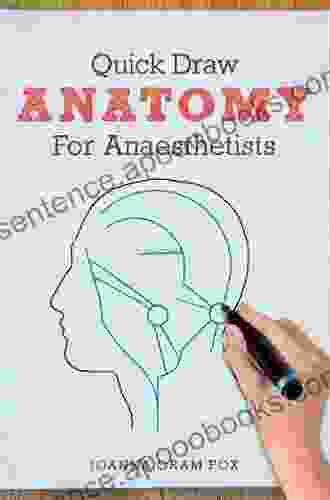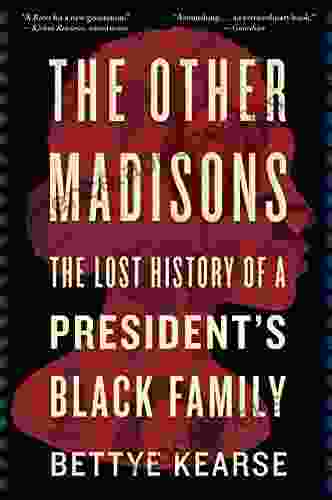A Comprehensive Analysis of Convolutional Neural Networks for Image Recognition

4.7 out of 5
| Language | : | English |
| File size | : | 273 KB |
| Text-to-Speech | : | Enabled |
| Screen Reader | : | Supported |
| Enhanced typesetting | : | Enabled |
| Word Wise | : | Enabled |
| Print length | : | 58 pages |
| Hardcover | : | 480 pages |
| Item Weight | : | 1.86 pounds |
| Dimensions | : | 6.14 x 1.06 x 9.21 inches |
Convolutional neural networks (CNNs) are a type of deep learning architecture that has revolutionized the field of computer vision. CNNs are specifically designed to process data that has a grid-like structure, such as images, and are particularly effective at recognizing patterns and extracting features from these types of data.
In this article, we will provide a comprehensive overview of CNNs, including their history, architecture, and applications. We will also discuss the current state-of-the-art approaches and challenges in this field.
History of Convolutional Neural Networks
The first CNN was developed by Yann LeCun in 1989. LeCun's CNN was able to recognize handwritten digits with a high degree of accuracy, and it quickly became a popular tool for image recognition tasks.
In the years since LeCun's original work, CNNs have undergone significant development. The of new activation functions, such as the ReLU and Leaky ReLU, and the development of new regularization techniques, such as dropout and batch normalization, have greatly improved the performance of CNNs.
Today, CNNs are the state-of-the-art approach for a wide range of image recognition tasks, including object detection, facial recognition, and medical imaging.
Architecture of a Convolutional Neural Network
A CNN is a type of deep learning architecture that is composed of multiple layers. Each layer in a CNN is responsible for performing a specific operation on the input data.
The first layer in a CNN is typically a convolutional layer. A convolutional layer applies a set of filters to the input data, which produces a feature map. The filters in a convolutional layer are typically small, such as 3x3 or 5x5 pixels.
The feature maps produced by the convolutional layer are then passed to a pooling layer. A pooling layer reduces the dimensionality of the feature maps by combining adjacent values. This helps to reduce the computational cost of the network and makes it more robust to noise.
The convolutional and pooling layers are typically repeated multiple times in a CNN. The number of layers in a CNN determines the depth of the network.
The final layer in a CNN is typically a fully connected layer. A fully connected layer is a traditional neural network layer that is used to classify the input data.
Applications of Convolutional Neural Networks
CNNs have a wide range of applications in the field of computer vision. Some of the most common applications of CNNs include:
* Image classification * Object detection * Facial recognition * Medical imaging * Video analysis * Natural language processing
CNNs have achieved state-of-the-art results on a wide range of image recognition tasks. For example, CNNs have been used to achieve human-level performance on the ImageNet image classification dataset.
Current State-of-the-Art Approaches
The current state-of-the-art approaches in CNN research focus on developing new architectures and techniques to improve the performance of CNNs. Some of the most recent advances in CNN research include:
* The development of new activation functions, such as the Swish and Mish activations * The development of new regularization techniques, such as dropout and batch normalization * The development of new pooling techniques, such as max pooling and average pooling * The development of new network architectures, such as ResNet and DenseNet
These advances have significantly improved the performance of CNNs on a wide range of image recognition tasks.
Challenges in Convolutional Neural Network Research
Despite the significant progress that has been made in CNN research, there are still a number of challenges that need to be addressed. Some of the most pressing challenges in CNN research include:
* The need for large amounts of training data * The computational cost of training CNNs * The overfitting of CNNs to training data * The interpretability of CNNs
These challenges are currently being addressed by researchers in the field of computer vision. With continued research, we can expect to see even greater advances in CNN technology in the years to come.
Convolutional neural networks are a powerful tool for image recognition and analysis. CNNs have achieved state-of-the-art results on a wide range of image recognition tasks, and they are being used in a variety of applications, such as object detection, facial recognition, and medical imaging.
The current state-of-the-art approaches in CNN research focus on developing new architectures and techniques to improve the performance of CNNs. These advances are likely to lead to even greater advances in CNN technology in the years to come.
4.7 out of 5
| Language | : | English |
| File size | : | 273 KB |
| Text-to-Speech | : | Enabled |
| Screen Reader | : | Supported |
| Enhanced typesetting | : | Enabled |
| Word Wise | : | Enabled |
| Print length | : | 58 pages |
| Hardcover | : | 480 pages |
| Item Weight | : | 1.86 pounds |
| Dimensions | : | 6.14 x 1.06 x 9.21 inches |
Do you want to contribute by writing guest posts on this blog?
Please contact us and send us a resume of previous articles that you have written.
 Book
Book Novel
Novel Page
Page Chapter
Chapter Text
Text Story
Story Genre
Genre Reader
Reader Library
Library Paperback
Paperback E-book
E-book Magazine
Magazine Newspaper
Newspaper Paragraph
Paragraph Sentence
Sentence Bookmark
Bookmark Shelf
Shelf Glossary
Glossary Bibliography
Bibliography Foreword
Foreword Preface
Preface Synopsis
Synopsis Annotation
Annotation Footnote
Footnote Manuscript
Manuscript Scroll
Scroll Codex
Codex Tome
Tome Bestseller
Bestseller Classics
Classics Library card
Library card Narrative
Narrative Biography
Biography Autobiography
Autobiography Memoir
Memoir Reference
Reference Encyclopedia
Encyclopedia Rikky Rooksby
Rikky Rooksby Craig Whitlock
Craig Whitlock Elle Cosimano
Elle Cosimano Dylan Taylor Lehman
Dylan Taylor Lehman Emma Curtis
Emma Curtis David Aliano
David Aliano Dylan Rodriguez
Dylan Rodriguez Robert Schultz
Robert Schultz Caimh Mcdonnell
Caimh Mcdonnell Elizabeth A Patterson
Elizabeth A Patterson Naomi Mccullough
Naomi Mccullough Manda Mellett
Manda Mellett Giuseppe Badaracco
Giuseppe Badaracco Daniel Cassidy
Daniel Cassidy Emery Petchauer
Emery Petchauer Paramahansa Yogananda
Paramahansa Yogananda Andrew Paquette
Andrew Paquette Moya Bailey
Moya Bailey Wayne Money
Wayne Money Elaine S Povich
Elaine S Povich
Light bulbAdvertise smarter! Our strategic ad space ensures maximum exposure. Reserve your spot today!
 Allen ParkerFollow ·15.4k
Allen ParkerFollow ·15.4k Ike BellFollow ·14k
Ike BellFollow ·14k Griffin MitchellFollow ·3.3k
Griffin MitchellFollow ·3.3k Art MitchellFollow ·6.2k
Art MitchellFollow ·6.2k Octavio PazFollow ·9.6k
Octavio PazFollow ·9.6k Forrest ReedFollow ·15.2k
Forrest ReedFollow ·15.2k Louis HayesFollow ·16.5k
Louis HayesFollow ·16.5k Jeremy CookFollow ·9.2k
Jeremy CookFollow ·9.2k

 Julian Powell
Julian PowellShetland Pony: Comprehensive Coverage of All Aspects of...
The Shetland...

 Cason Cox
Cason CoxHow Anaesthetics Changed the World: A Medical Revolution...
Imagine a world where surgery is an...

 Harold Powell
Harold PowellUnleash Your Inner Songwriter: The Ultimate Guide for...
Calling all aspiring songwriters!...

 Nikolai Gogol
Nikolai GogolUnleash Your Artistic Potential: Quick Draw Anatomy for...
In the dynamic and visually...

 Tim Reed
Tim ReedThe Rock 'n' Roll Life of Legendary Sax Man Bobby Keys
The Rock 'n' Roll Life...

 Damon Hayes
Damon HayesMoney Management Activities for Youth: A Guide to...
In an era marked by rapidly...
4.7 out of 5
| Language | : | English |
| File size | : | 273 KB |
| Text-to-Speech | : | Enabled |
| Screen Reader | : | Supported |
| Enhanced typesetting | : | Enabled |
| Word Wise | : | Enabled |
| Print length | : | 58 pages |
| Hardcover | : | 480 pages |
| Item Weight | : | 1.86 pounds |
| Dimensions | : | 6.14 x 1.06 x 9.21 inches |












